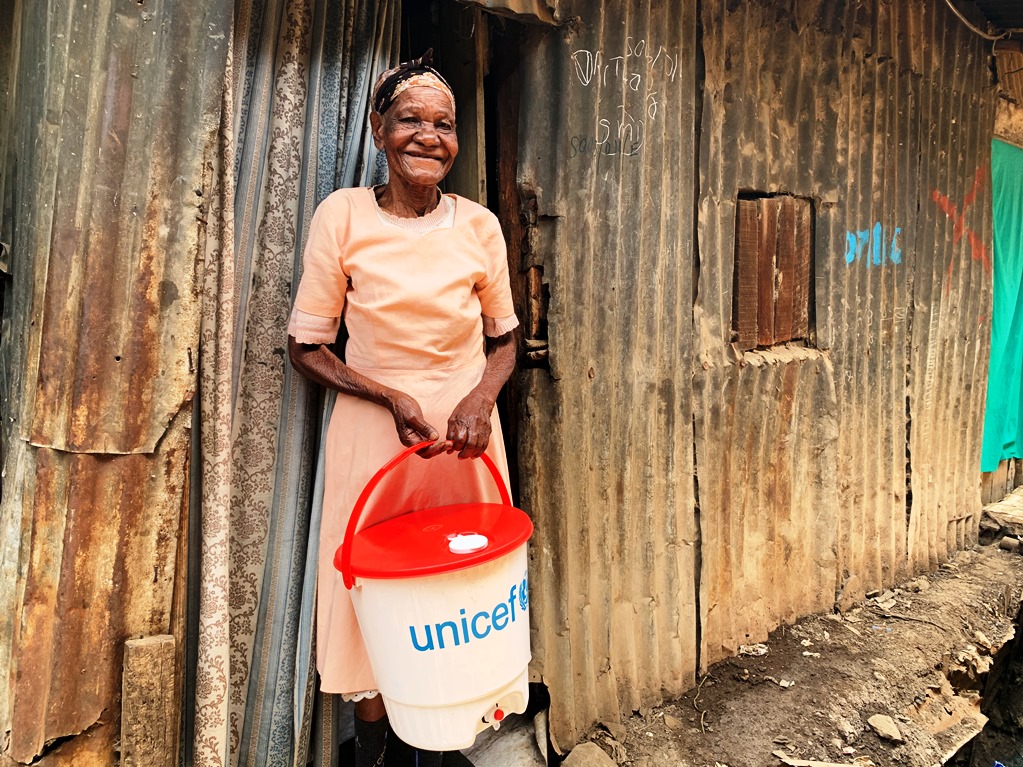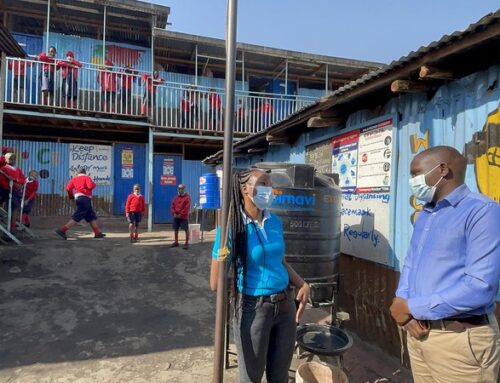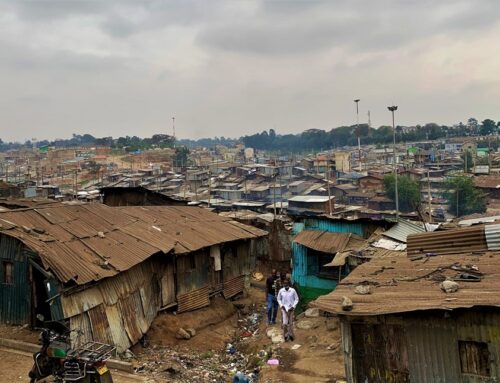On a hot and humid July afternoon, Jacob Omondi, 67-year-old grandfather, sat in his one-roomed windowless mud-walled house deep in Kibera slum waiting for the other members of his family to come back from their daily jobs around the city.
Omondi suffers from a backbone condition that has limited his mobility and confined him in the house as the global coronavirus pandemic ravages the livelihood of his children who have to fend for him and their families by doing casual jobs.
“I can’t walk far due to my back ailment, and the coronavirus disease has made it even harder for my children to eke out a living,” Omondi said, sitting pensively on a plastic armchair at the doorway of his house.
“The government said we need to maintain hygiene, and luckily I got this handwashing vessel from UNICEF, which has made it easier for my family and me,” he said, adding that all family members and visitors have to wash their hands every time they come into the house.

WASH Alliance Kenya (WAK), with support from UNICEF through UKAID funding, distributed 10,000 handwashing vessels to the most vulnerable persons living in informal settlements in Nairobi under the COVID-19 Emergency Response Programme.
The program aims to improve access to safe water supply in selected informal settlements through water connection and repairs, installation of handwashing stations in public spaces, and distribution of the handwashing vessels and soap to vulnerable households.
In partnership with the Ministry of Health, the Nairobi Metropolitan Services, Nairobi Water and Sewerage Company, and select local organizations (Umande Trust and KWAHO), WAK has reached the elderly, persons living with disability, orphaned and vulnerable children, and the chronically ill persons in Kibera, Mathare, Mukuru and Githogoro slums.
Informal Settlements
In Kibra, 38 handwashing stations and soap were installed at high traffic areas, and six water tanks strategically installed in areas that the most vulnerable persons can reach them safely and easily.
“This program has been of great support to the government’s effort in the fight against COVID-19 by addressing the most vulnerable population of the informal settlements,” said Tobias Omufwoko, CEO at WASH Alliance Kenya.
“Gender equality and social inclusion will be taken into account in the intervention strategies, by considering how COVID-19 affects genders differently and designing responses to deal with these differences accordingly.”
Community spread of COVID-19 in Kenya has picked pace since the first case was reported in March, with 26,928 infections and 423 deaths recorded by August 10 across the East African nation of 47 million people.
In Nairobi, approximately 1.5 million people – or 36 percent of the population – live in informal settlements, according to the draft 2020 Budget Policy Statement (BPS) https://www.treasury.go.ke/media-centre/news-updates/707-draft-2020-budget-policy-statement.html
The BPS estimates that some 10 million people live in slums across the country, leaving them exposed to poor sanitation and hygiene conditions that could lead to diseases such as cholera, typhoid, and dysentery.
The elderly, chronically ill, disabled, and orphaned children living in these informal settlements are especially vulnerable during this global pandemic. To safeguard them, the national and county governments are increasingly calling for emergency measures to be put in place.
The government introduced safeguards, including closing schools, churches, bars, and banning public gatherings in efforts to stop the spread of the coronavirus across the country.
Other Measures
Other measures introduced include mandatory wearing of facemasks in public places and transportation, handwashing at every business premises and public spaces like markets and bus stations, and encouraging people to stay and work at home.

These measures have however been difficult to adhere to especially in informal settlements where people have to choose between buying basics like food and protecting themselves against the deadly viral disease, according to Kennedy Omolo of Umande Trust, an implementing partner working under the WAK COVID-19 response program in Kibra.
We’ve been receiving the elderly, the physically challenged, and other very vulnerable people asking for the vessels. There is a great need for these facilities and if there was a way to get more and reach some of these people we would be touching the most disadvantaged in the community,” Omolo said.
“We need to do a mass sensitization of COVID-19 and do one-on-one targeted household conversations,” added Omolo.
While the handwashing vessels were meant for individual homes in the targeted informal settlements some like Ruth Adongo, mother of three who is also taking care of her sick mother, has had to share hers with neighbors.
“I told my neighbor we could share the vessel since our houses are adjacent,” said Adongo, 28, while cradling her last-born son. She added that there was still a challenge affording water. The Kenya government-directed county governments to provide free water in informal settlements for three months, since April, and to suspend the disconnection of unpaid water supply in slums.
However, residents have to wait and make long queues with jerricans to receive free water from the NMS bowser.



